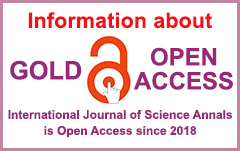| 1 Lincoln University College, Malaysia |
Abstract
We explore the potential effectiveness of incorporating maranassati meditation into therapeutic practices, highlighting its ability to mitigate thanatophobia and improve psychological well-being. Drawing upon Buddhist psychological perspectives, maranassati emphasizes the contemplation of mortality, impermanence, and interconnectedness.
The aim of the study: to integrate Buddhist meditative practice into thanatophobia therapy.
This article presents research evidence from real-world scenarios involving individuals with coronary artery disease, cancer patients, and the elderly. The initial findings provide a solid foundation, reinforcing the efficacy of mindfulness-based therapies in reducing death anxiety and improving psychological well-being. The proposed approach offers valuable insights for counselors and therapists in assisting future clients in cultivating a positive outlook on death, thereby alleviating fear and anxiety associated with mortality.
Keywords
meditation, contemplating, cognitive therapy, thanatophobia, maranassati, Buddhist practice
References
Allen, K. & Catherine, S. (2017). Maranasati for the modern world: Reflections on death. Insight Meditation South Bay. https://www.imsb.org/written-teachings-articles-and-interviews/maranasati-for-the-modern-world/
Anālayo, B. (2019). Buddhist antecedents to the body scan meditation. Mindfulness, 11(1), 194-202. https://doi.org/10.1007/s12671-019-01259-8
Anālayo, B., Medvedev, O. N., Singh, N. N., & Dhaussy, M. R. (2022). Effects of mindful practices on terror of mortality: A randomized controlled trial. Mindfulness, 13(12), 3043-3057. https://doi.org/10.1007/s12671-022-01967-8
Black, P. M. (2014). Three definitions of death. The Monist, 60(1), 136-146. (Original work published 1977). https://doi.org/10.5840/monist197760137
Colett, L. J. & Lester, D. (2012). The fear of death and fear of dying. The Journal of Psychology, 72(2), 179-181. (Original work published 1969). https://doi.org/10.1080/00223980.1969.10543496
Fadila, D. E., Ebeid, I. A., & El-Gilany, A. (2018). Death attitude and its associated factors in institutionalized elderly: A cross-section study in North Eastern Delta, Egypt. IOSR Journal of Nursing and Health Science, 7(6), 12-19. https://iosrjournals.org/iosr-jnhs/papers/vol7-issue6/Version-3/B0706031219.pdf
Ghadampour, E., Radmehr, P. & Yousefvand, L. (2018). The effect of mindfulness-based cognitive therapy in reducing death anxiety in women suffering from coronary artery disease. Journal of Shahrekord University of Medical Sciences, 19(6), 38-47. https://journal.skums.ac.ir/article-1-3112-en.html
Golestanifar, S., & DashtBozorgi, Z. (2021). Comparing the effectiveness of acceptance and commitment therapy and well-being therapy on life expectancy and psychological health in elderly nonclinical depressed patients. Journal of Rafsanjan University of Medical Sciences, 20(3), 297-312. https://doi.org/10.52547/jrums.20.3.297
Hoffman, J. C. (1979). Clarifying the debate on death. Soundings: An Interdisciplinary Journal, 62(4), 430-447. https://www.jstor.org/stable/41178135
Menekli, T., & Doğan, R. (2021). Τhe effect of the religious attitudes on the death attitudes and death anxiety in elderly intensive care patients: A cross-sectional study. Health and Research Journal, 7(4), 194. https://doi.org/10.12681/healthresj.28190
Moon, H. G. (2019). Mindfulness of death as a tool for mortality salience induction with reference to terror management theory. Religions, 10(6), 353. https://doi.org/10.3390/rel10060353
Nabipour, S., Rafiepour, A., & Alizadeh, K. H. (2018). The effectiveness of mindfulness based cognitive therapy training on anxiety of death and thoughts of suicide of patients with cancer. Zahedan Journal of Research in Medical Sciences, 20(1), e10534. https://doi.org/10.5812/zjrms.10534
Nozari, Z., Mo’tamedi, A., Eskandari, H., & Ahmadivand, Z. (2019). Narrative group therapy to improve aging perceptions and reduce thanatophobia (death anxiety) in older adults. Elderly Health Journal, 5(2), 117-123. https://doi.org/10.18502/ehj.v5i2.2158
Pirkalani, R. K., Saatchi, L. R., & Majd, M. M. (2019). The effectiveness of mindfulness-based cognitive therapy (MBCT) on depression, death anxiety and life expectancy in elderly women. Journal of Gerontology, 3(3), 11-20. https://doi.org/10.29252/joge.3.2.11
Statista. (2023). United States: How afraid are you of death? https://www.statista.com/statistics/959347/fear-of-death-in-the-us/
Sujato, B. (n. d.). Middle discourses 9. Right view. (Trans.). SuttaCentral. https://suttacentral.net/mn9/en/sujato
Sujato, B. (n. d.). Middle discourses 10. Mindfulness meditation. (Trans.). SuttaCentral. https://suttacentral.net/mn10/en/sujato
Ho Thi Thu Hang (Corresponding Author) – https://orcid.org/0009-0002-5383-2815;
| |
APA
Ho, T. T. H. (2023). Integrating meditation practice into thanatophobia therapy. International Journal of Science Annals, 6(1), 54–57. https://doi.org/10.26697/ijsa.2023.1.6
Harvard
Ho, T. T. H. 2023. " Integrating meditation practice into thanatophobia therapy". International Journal of Science Annals, [online] 6(1), pp. 54–57. viewed 30 June 2023, https://culturehealth.org/ijsa_archive/ijsa.2023.1.6.pdfVancouver
Ho T. T. H. Integrating meditation practice into thanatophobia therapy. International Journal of Science Annals [Internet]. 2023 [cited 30 June 2023]; 6(1): 54–57. Available from: https://culturehealth.org/ijsa_archive/ijsa.2023.1.6.pdf https://doi.org/10.26697/ijsa.2023.1.6












